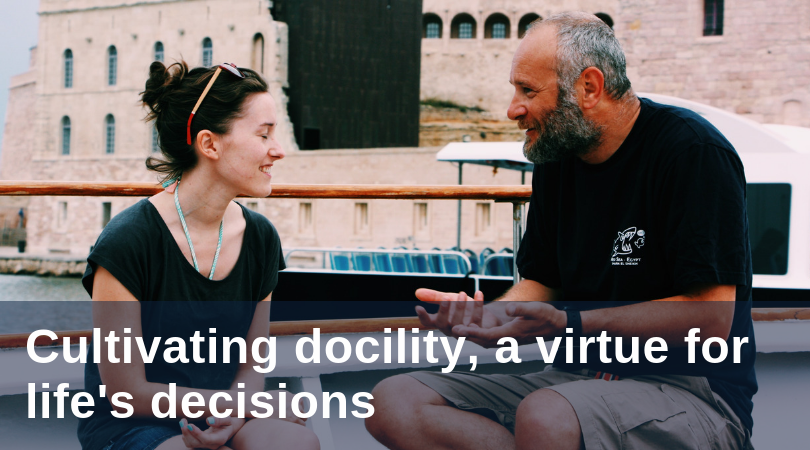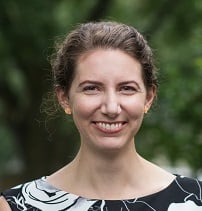
It is not good for man to be alone (Gen. 2:18).
The ol’ rugged individualism used to be a mark of American pride, but our culture is discovering the folly of self-reliance.
We are suffering an epidemic of loneliness. We know what it is to despair in the face of life’s uncertainties. A friend of mine recently told me she feels like a “very tired hobbit looking for the Shire”—and I know she is not alone. So many of us are little hobbits simply lost on the winding way home.
Tomorrow is the feast of Our Lady of Good Counsel, a marvelous opportunity to embrace the limits of our own navigational skills. Mary is the “Seat of Wisdom” and a model of good counsel not by her own merits, but because she is first and foremost the throne and tabernacle of the living God, who is Wisdom itself. In her beautiful receptivity to divine wisdom, Mary teaches us about the virtue of docility.
Learning how to learn
Educators often praise the “independent thinker,” but St. Thomas Aquinas argues that the independent thinker is a myth. Of course, it is important that students learn to reason well. We all need the virtue of prudence or practical wisdom, which disposes us to reason well about choices and action. But even the wisest person is not fully independent. As St. Thomas writes, “In the matters that fall under prudence, no one is sufficient unto himself with respect to all of them.”
No one is sufficient. Wisdom requires docility, a humble disposition of receptivity to the teaching of others. A docile person is a “teachable” person, who has learned how to learn. For St. Thomas, this virtue of life-long learning is an “integral part” of prudence, meaning it is an essential element—like walls and a roof are essential elements of a house. Why so important? In brief, human freedom. Amidst all the messiness of life’s circumstances, St. Thomas observes that we each confront an “infinite diversity” of possibilities. There are so many paths for the choosing! And not only that, but it is often so unclear which path will lead us to the joyful rest that our weary legs long for. Which choice is the right one?
To answer this question, often we must lean on the wisdom of others. We hobbits need shepherds and guardians on our long journey home. With docile minds and hearts, we must not be afraid to seek out the loving support and counsel of parents, mentors, counselors, teachers, spiritual directors and friends.
But there is a catch: not just any friend will do.
Where are we going?
Just as a road is a means to a destination, every choice I make is a means to an end. My choice to take vitamins in the morning is a means to good health, and my choice to attend a concert in the evening is a means to experiencing beauty. St. Thomas explains that consilium, “counsel” or “deliberation,” is a stage in every act of prudence: before making a choice, we deliberate about appropriate means to our end. This stage often requires research, thoughtful reflection and advice from others. After all, I’d hate to attend a concert that won’t actually be beautiful! The virtue of docility might lead me to take counsel from a musician friend, who knows better than I do the various means to my end.
But when it comes to deliberating about life as a whole, my friend must understand my ultimate destination. Where are we going? Vitamins and concerts cannot satisfy the infinitude of human desire: we don’t simply long for beautiful things, but the source of all beauty. As C.S. Lewis writes, “The sweetest thing in all my life has been the longing—to reach the Mountain, to find the place where all the beauty came from.” That mountain at the end of our journey is the eternal Mount of Transfiguration, the mountain where we meet the resurrected Christ in all his glory and join him in a friendship more intimate than we can possibly imagine. Students of wisdom must seek counsel not from just anyone, but from friends who understand that heaven is our final home.


